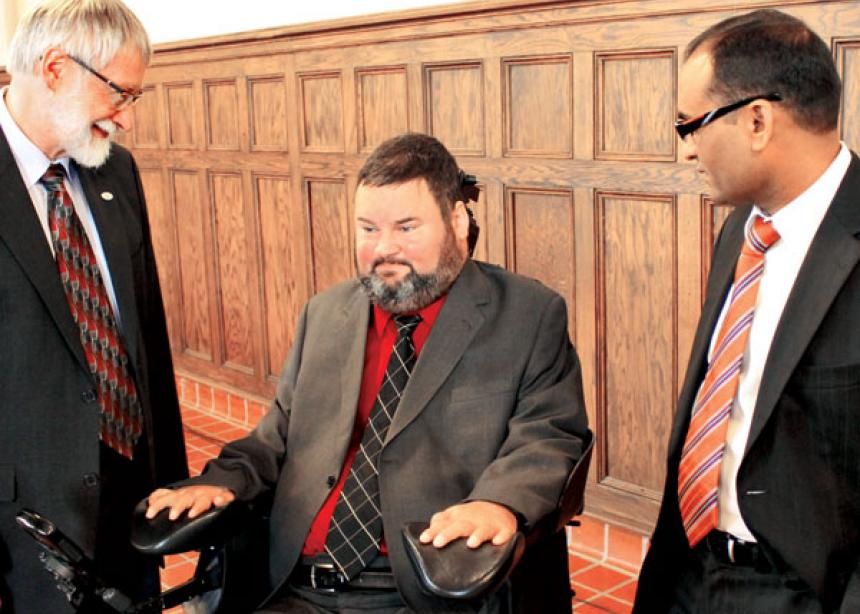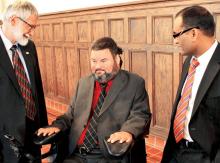Over the course of a week in October, Canadian Mennonite University (CMU) came into a total of $10 million for its new business school and a food security research project in South Asia.
On Oct. 19, the Redekop family of the Fraser Valley in British Columbia pledged a minimum of $6.5 million—and potentially up to $7.5 million—to fund the Redekop School of Business. This is the largest private donation that CMU has ever received.
The Redekop School of Business will use an inter-disciplinary approach in preparing graduates for a business environment that is ever-more global in nature. Students will become engaged in business and not-for-profit organizations with a worldview and character shaped within a Christian university community.
The school will offer a four-year bachelor of business administration degree (with a fifth-year co-op option) with majors in business management, not-for-profit management, accounting and human resources management; and three- and four-year bachelor of arts degrees with majors in business and organizational administration.
The Redekop family decided to invest in future business people and not-for-profit leaders because of their own experiences in business. They fled from the Soviet Union during World War II and established a farm and construction business when they arrived in B.C. These businesses have grown and have established the Redekops as business leaders in the community.
“The school will greatly enhance the university’s ability to prepare and educate a significant number of Christian business leaders who will provide a positive influence on society and the life of the church, and who will have the resources to fund the church’s institution,” Peter Redekop said.
CMU president Gerald Gerbrandt agreed. “We [at CMU] are convinced that the Redekop School of Business will have a positive impact on our community and all those who will be served by our business graduates,” he said.
Six days earlier, Stephen Fletcher, the federal transportation minister, announced that the Canadian International Development Agency and the International Development Research Centre were providing $3.5 million for a CMU project supported through the Canadian International Food Security Research Fund.
Kirit Patel, an assistant professor of international development studies at CMU’s Menno Simons College, is one of the principal investigators for the “Revalorizing minor millets in rain-fed regions of South Asia” project. His project addresses agricultural policy in South Asia that currently places the emphasis on cash crops that aren’t very nutritional, rather than on minor millets that are very nutritious.
This has led to severe under-nutrition, Patel said. “Under-nutrition of women and children in India and [other parts of South Asia] is worse than Sub-Saharan Africa.”
This project will take place in India, Nepal and Sri Lanka.
Gerbrandt believes that the funding will not only help CMU be part of a global effort to end hunger, but also to pass on knowledge and wisdom so that students can understand the world better. “This funding will enable the research team to make significant progress in gaining understanding and knowledge in their field of research,” he said.
CMU receives $10 million in private, public funds
November 9, 2011 | God at work in the Church | Number 22
By Rachel Bergen | National Correspondent
Winnipeg, Man.
Steven Fletcher, the federal transportation minister, centre, announces $3.5 million in government funding for a project CMU professor Kirit Patel, right, will undertake in Asia. CMU president Gerald Gerbrandt looks on.



Add new comment
Canadian Mennonite invites comments and encourages constructive discussion about our content. Actual full names (first and last) are required. Comments are moderated and may be edited. They will not appear online until approved and will be posted during business hours. Some comments may be reproduced in print.